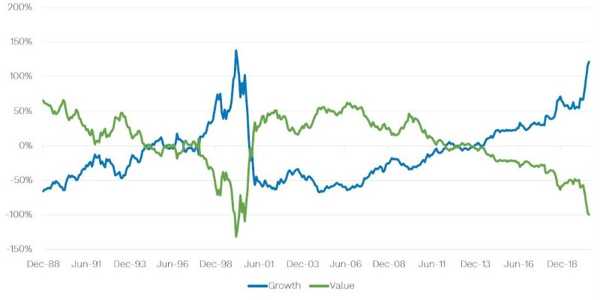How To Invest In International Stock Markets
Investing in international stock markets presents a range of opportunities for individuals looking to diversify their investment portfolios. With the global economy increasingly interconnected, gaining exposure to foreign markets can be an effective way to access high-growth potential, mitigate risks, and build wealth over the long term. This article will provide a comprehensive guide on how to invest in international stock markets, touching on the essential steps, risks, and methods available to investors in 2025.
The Basics Of International Investing
Before jumping into international stock markets, it’s crucial to understand what international investing entails. International investing refers to purchasing stocks, bonds, or other financial instruments in markets outside your home country. By doing so, investors gain exposure to the economic performance of different regions, industries, and businesses. International markets can be more volatile and less predictable than domestic markets, but they also offer the potential for higher returns due to the variety of growth opportunities available worldwide.
There are two primary types of international investing:
Developed Markets:
These are countries with well-established economies, such as the United States, Germany, and Japan. These markets tend to be more stable, with lower levels of risk compared to emerging markets.

Emerging Markets:
These are economies that are in the process of rapid growth and industrialization, such as Brazil, India, and China. While these markets offer substantial growth potential, they are also riskier due to factors like political instability and fluctuating economies.
Investors must decide which type of market they want to focus on and balance the potential risks and rewards that come with it.
Methods Of Investing In International Stock Markets
There are various ways to invest in international stocks. Each method has its own set of advantages, and the choice depends on factors like the investor’s goals, risk tolerance, and investment horizon.

Direct Stock Purchases
One of the simplest ways to invest internationally is by directly purchasing foreign stocks. This can be done through brokerage accounts that offer access to international markets. Many large brokerage firms provide the ability to buy stocks listed on foreign exchanges, allowing investors to own shares in companies located abroad directly.
However, this method may involve challenges such as navigating foreign regulations, dealing with currency conversion, and understanding the local market dynamics. Investors should also be aware of the tax implications of investing in foreign stocks.
Exchange-Traded Funds (ETFs)
Exchange-traded funds (ETFs) are one of the most popular and accessible methods for investing in international stocks. These funds track a specific index, sector, or country, offering a diversified portfolio of international stocks. For example, an ETF might track the MSCI World Index, which represents large- and mid-cap stocks across 23 developed markets.

ETFs are traded on exchanges just like individual stocks, making them easy to buy and sell. Additionally, ETFs typically have lower fees than actively managed funds, making them an efficient investment option. Investing in ETFs also allows investors to hedge against country-specific risks by spreading their investments across multiple companies in various sectors.
Mutual Funds
Mutual funds are another way to invest in international markets. Similar to ETFs, these funds pool money from multiple investors to buy a basket of international stocks. The key difference is that mutual funds are usually actively managed, meaning that fund managers select the stocks to invest in based on research and analysis.
While mutual funds provide the benefit of professional management, they typically have higher fees than ETFs. Additionally, mutual funds may not be as liquid as ETFs, meaning they cannot be bought or sold as easily. For investors seeking exposure to a specific region or market, a mutual fund may be an attractive option.
Key Considerations When Investing In International Stocks
While investing in international stocks can offer significant returns, it is essential to consider a few key factors that can impact the success of your investments.

Currency Risk
One of the primary risks of investing in foreign stocks is currency risk. Since international stocks are often traded in the local currency of the country where they are listed, fluctuations in exchange rates can affect the value of your investment. For example, if you invest in the Japanese stock market and the value of the yen declines relative to your home currency, your returns may be diminished even if the stocks themselves perform well.
There are ways to manage currency risk, such as hedging through financial instruments or investing in ETFs and mutual funds that focus on currency-hedged assets. However, it is important to be aware of how currency movements can impact your international investments.
Political And Economic Risks
Investing in international markets exposes you to political and economic risks that may not be present in your home country. For instance, political instability, changes in government policies, or economic downturns can dramatically impact the stock market in a foreign country.
Emerging markets, in particular, tend to have higher levels of political and economic uncertainty. It's important to do thorough research on the political and economic conditions in the countries you are considering investing in. Diversifying your international investments across different countries and regions can help mitigate some of these risks.
Tax Implications
International investments come with unique tax considerations that investors must be aware of. Some countries impose taxes on dividends, capital gains, or foreign investments. Additionally, there may be tax treaties between countries that can either help or hinder your returns.

It's a good idea to consult a tax professional with experience in international investing to understand how taxes will affect your specific situation. This can help you plan accordingly and avoid unpleasant surprises when it comes time to file your taxes.
Conclusion
Investing in international stock markets can be an exciting and profitable way to expand your investment horizons and diversify your portfolio. With multiple methods available—direct stock purchases, ETFs, mutual funds, ADRs, and global brokerage accounts—investors can choose the approach that best suits their goals and risk tolerance.
In 2025, the global stock markets are filled with both potential and volatility. With the right strategies and a long-term perspective, investing in international stocks can lead to substantial returns and help you build a robust, diversified investment portfolio.





